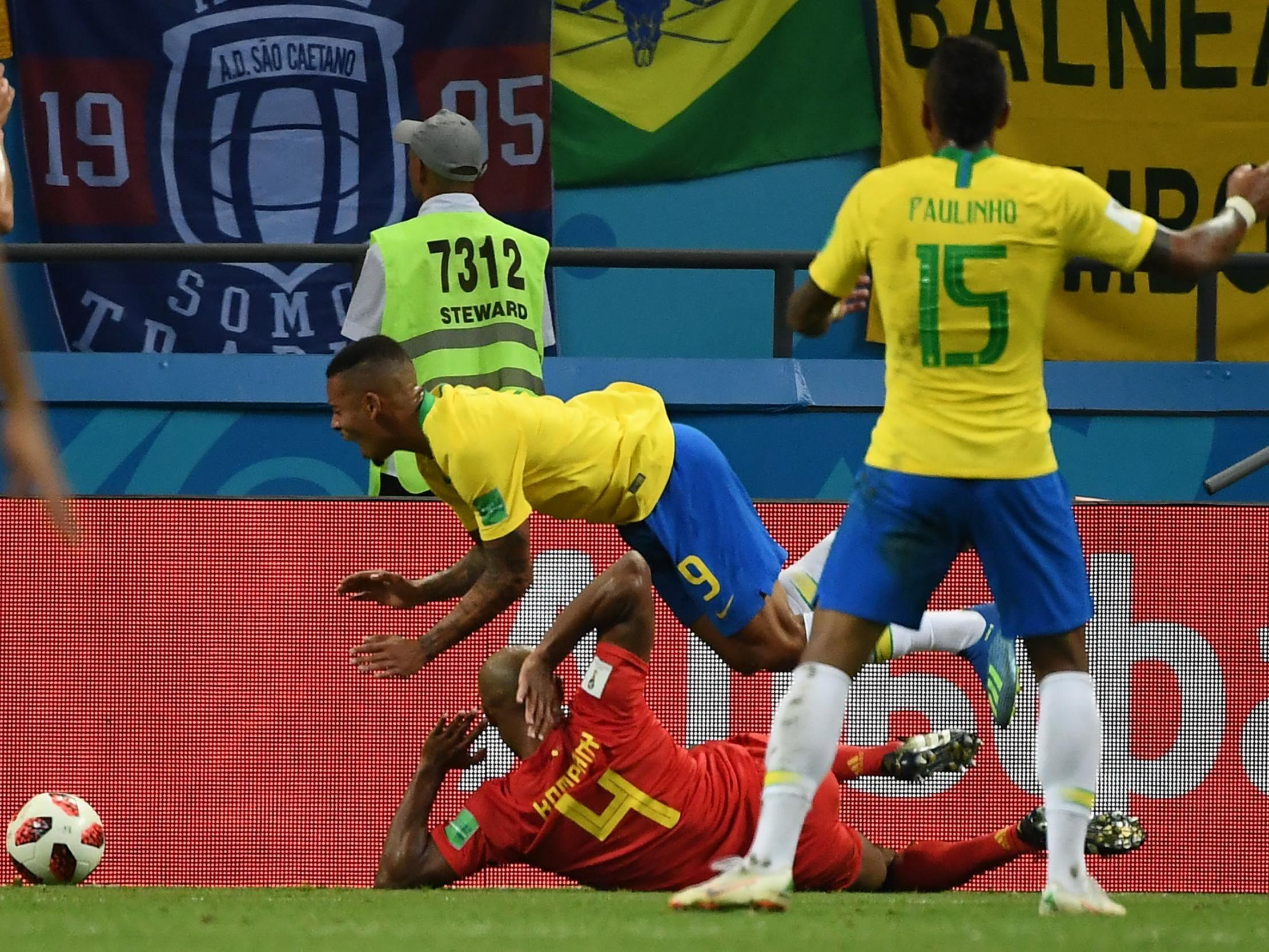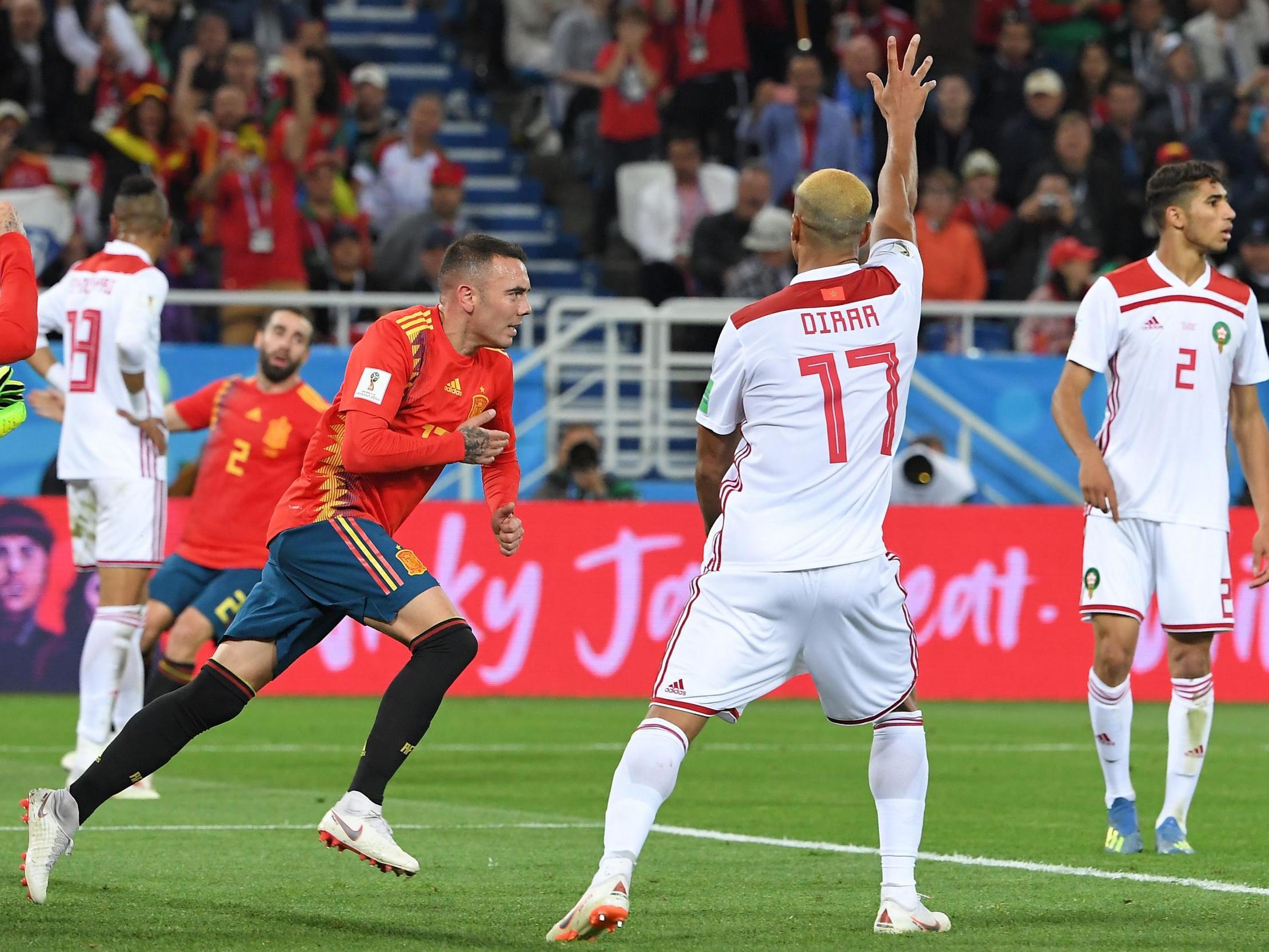How did VAR fare at the World Cup? A closer look at the most contentious moments
We take a look at five examples of where VAR was used to try to determine the right decision

Your support helps us to tell the story
From reproductive rights to climate change to Big Tech, The Independent is on the ground when the story is developing. Whether it's investigating the financials of Elon Musk's pro-Trump PAC or producing our latest documentary, 'The A Word', which shines a light on the American women fighting for reproductive rights, we know how important it is to parse out the facts from the messaging.
At such a critical moment in US history, we need reporters on the ground. Your donation allows us to keep sending journalists to speak to both sides of the story.
The Independent is trusted by Americans across the entire political spectrum. And unlike many other quality news outlets, we choose not to lock Americans out of our reporting and analysis with paywalls. We believe quality journalism should be available to everyone, paid for by those who can afford it.
Your support makes all the difference.The Video Assistant Referee system was brought in for the first time at the 2018 World Cup.
Designed to help guide match officials at the tournament on potential game-changing decisions – such as incidents in the build-up to goals or penalties, as well as straight red cards or cases of mistaken identity – it was not long before the new system found itself under the spotlight in Russia.
Here, we take a look at five moments where VAR was used to try to determine the right decision:
Australia pay the penalty
France benefited from a controversial first use of VAR technology at a World Cup as they beat Australia 2-1 in their opening Group C match. Antoine Griezmann put Les Bleus ahead with a contentious second-half penalty in Kazan. Uruguayan referee Andres Cunha initially played on following Joshua Risdon’s challenge on Griezmann before pointing to the penalty spot after consulting VAR and viewing a screen next to the dugouts.
Kompany’s tangles with Jesus
With five-time champions Brazil trailing 2-0 in the quarter-final against Belgium in Kazan early in the second half, Belgium defender Vincent Kompany appeared to have brought down Gabriel Jesus, his Manchester City team-mate. Referee Milorad Mazic, though, pointed for a goal-kick rather than a penalty, before a review was made to the VAR, Daniele Orsato.

Despite Brazil’s appeals, the decision stood, as debate continued over the amount of contact and whether the ball had gone out of play. As Brazil later chased what would have been an equaliser, Neymar threw himself to the floor after a challenge with Thomas Meunier, but once more the officials were not interested.
Ronaldo in the spotlight
Portugal forward Cristiano Ronaldo was, as usual, centre stage against Iran in Saransk during the final round of Group B matches on June 25. Leading 1-0, the European champions were awarded a penalty after 51 minutes following a VAR intervention after referee Enrique Caceres had initially given nothing when Ronaldo went down under a clumsy challenge from Morteza Pouraliganji. Ronaldo, who saw his spot-kick saved, was again subject of a VAR review later in the match after swinging an arm at Pouraliganji off the ball – but was eventually shown only a yellow card. In stoppage time, VAR was used once more to award Iran a controversial penalty for a harsh handball against Cedric Soares. Karim Ansarifard converted, but Portugal had done enough to progress out of the group.
Aspas holds his line
On the same night in Kaliningrad, Spain were trailing Morocco 2-1 in stoppage-time and looked set to finish as runners-up before substitute Iago Aspas flicked the ball into the net, only for the offside flag to go up. However, a subsequent VAR review showed the Celta Vigo forward was indeed level, so the goal stood. The draw was enough to see Spain top the group and go on to face hosts Russia in the last 16.

Holders crash out
Needing a winner to scrape into the knockout stage, holders Germany thought they were given a lifeline in their final Group F match when Kim Young-gwon’s stoppage-time goal was initially ruled out for offside. However, following a VAR review, American referee Mark Geiger changed his mind after replays showed Toni Kroos got the last touch before the ball fell to Kim. Moments later, with Germany goalkeeper Manuel Neuer stranded upfield, a long ball from Ju Se-jong found Tottenham forward Son Heung-min, who had the simple task of rolling the ball into an empty net to complete a 2-0 win and dump the champions out.
Join our commenting forum
Join thought-provoking conversations, follow other Independent readers and see their replies
Comments